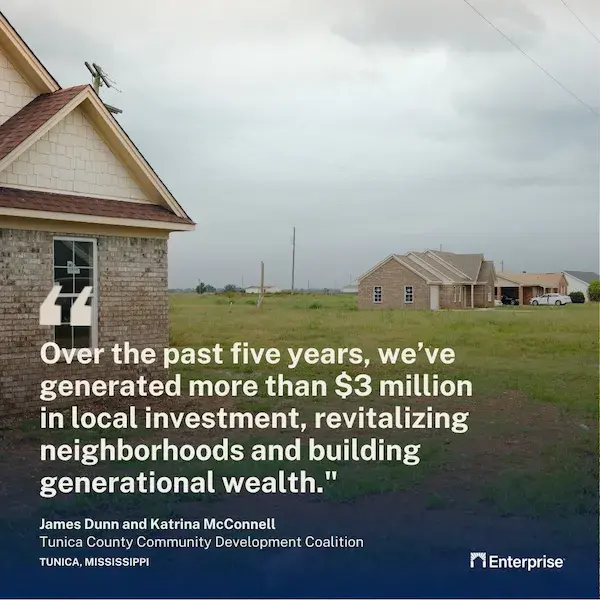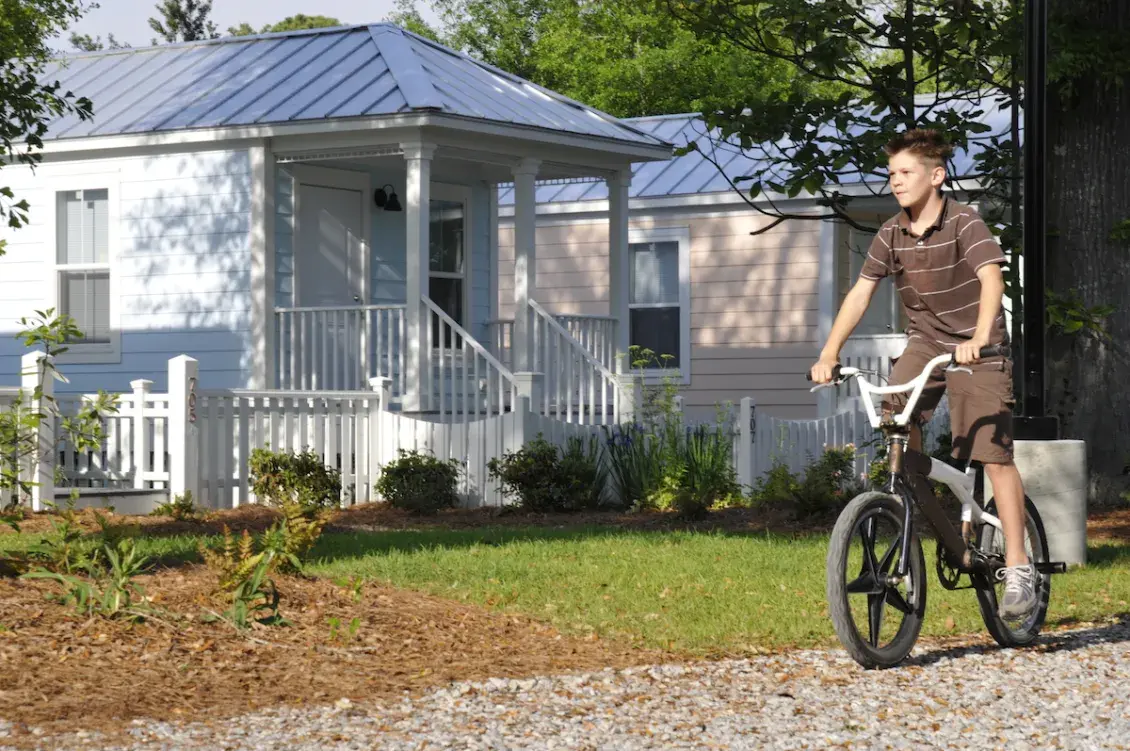Affordable homes. Job creation. Community revitalization. With the support of Section 4 funding, Gulf Coast organizations are helping to transform lives in rural communities.
These stories highlight the enduring impact of over $7.2 million in grants and loans provided over the last 10 years in Mississippi and Louisiana.
Mississippi: Building Futures and Hope in Jackson, Gulfport and Tunica
In Jackson, Voices of Calvary Ministries, led by President & CEO Margaret Johnson, is turning abandoned properties into homes and building opportunity and generational wealth. With Section 4 funding, they’ve removed 39 blighted properties, engaged over 100 households, and opened the door to homeownership for low-income families with low incomes. Their workforce development efforts are lifting up minority contractors to offer real jobs with real futures.
"As Jackson faces a below-average homeownership rate and a high concentration of single-parent households, continued Section 4 support is vital to breaking generational poverty and fostering long-term self-sufficiency within the community," Johnson said.
And in Gulfport, Steps Coalition is doing something bold: creating homes where none have been built in two decades. With Section 4 backing, they’re developing a 36-unit affordable rental project in historically neglected East Biloxi. It’s a lifeline for 36 families—made possible with the funding, Executive Director Jonathan Green said.
"There haven’t been any newly constructed affordable homes in East Biloxi in almost 20 years since the Katrina era. We were in the process of developing a 36-unit affordable rental housing project in East Biloxi, which is historically an African American and Vietnamese community that has seen significant disinvestment," Green said. "We've used Section 4 funding for this project, for all of the pre-development work, to pay the architects, the engineers to take it through zoning approval with the city of Biloxi."

In the heart of Mississippi, Tunica County Community Development Coalition is working side by side with families on their journey to homeownership. Executive Director James Dunn and Financial Manager/Grant Administrator Katrina McConnell lead the charge, offering financial literacy training, mortgage prep, and personal support that can take years.
The results? Over $3 million in local investment and neighborhoods brought back to life. Small businesses—electricians, plumbers, contractors—are thriving.
Miss Butler, a teacher in the school system, thought homeownership was beyond her reach, and was hesitant in pursuing the possiblity. Now, Miss Butler is overjoyed to become a homeowner at 65 years of age, going from spending her life in dilapidated housing and moving to a new home.
Louisiana: Reviving a Community in Bogalusa
Since 2019, Bogalusa Rebirth has been doing just that—revitalizing neighborhoods and bringing hope to this Louisiana community. Thanks to Section 4, they’ve built and sold 12 homes and earned certifications to create even more, including HUD housing counseling and USDA loan packaging. But beyond stats, it’s the people who matter most.
One unforgettable story? A woman who moved from public housing to homeownership through a lease-purchase program. Today, she owns her home—something that once felt like an impossible dream. With new units under construction and more on the way, Bogalusa Rebirth is proving that the funding is transformative for both local nonprofits and residents.
"I don't know how we could have ever done it without Section 4 because they covered a lot of our operations and staffing," Executive Director Wendy Williams Dupont said.
Moving Programs, Progress, and Possibilities Forward
Because of this essential funding, critical projects moved ahead, new partnerships came together, and life-changing opportunities made.
"Without Section 4, these efforts would be significantly hindered, jeopardizing affordable housing projects and the sustainability of essential community programs," Johnson said. "The loss of funding would stall the development of new homes, disrupt partnerships with key financial institutions, and limit job creation, ultimately perpetuating cycles of poverty and housing instability."
"The loss of these resources would disproportionately impact vulnerable residents, many of whom are still recovering from past disasters and economic hardships," Green said. "Continued investment in Section 4 is critical to sustaining Steps’ mission, preserving housing stability and fostering economic resilience across the Mississippi Gulf Coast."
